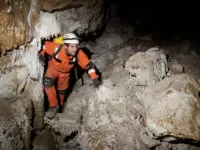
An Analytical Chemist is a scientist that studies and tests the chemical composition and behaviors of many different substances.
What Does an Analytical Chemist Do?
Analytical Chemists perfor controlled experiments to explore the exact chemical components of a substance. Typically they will analyze various samples to discover what it is made of and how it reacts under certain conditions. Utilizing various pieces of specialized equipment and advanced software, data is collected and analyzed to determine possible uses for the substance. They must then write up complex technical reports detailing their findings. In addition, Analytical Chemists may be required to work on research teams and collaborate with other experts to achieve their end goal.
Where Does an Analytical Chemist Work?
Analytical Chemists spend most of their time in laboratories and office environments. In the labs, they conduct various experiments while handling possibly dangerous chemicals. This makes following standard protocols and safety procedures extremely important. Once they have performed their experiments, they move to the office environment to analyze their data using advanced software. Analytical Chemists working for larger companies may be required to travel between locations for monitoring safety conditions. Analytical Chemists generally work full-time on regular schedules.
What Is the Average Analytical Chemist Salary?
Analytical Chemists earn an average of $79,300 annually. The lowest 10% make around $54,810, while the highest 10% earned around $165,290. Most Analytical Chemists work for private research and development firms, while another large portion work for pharmaceutical companies or testing labs.*
What Is the Job Demand for Analytical Chemists?
The job demand for Analytical Chemists is anticipated to grow 6% in the next 10 years (2020-2030), which is slower than average. New forms of environmental research should offer many opportunities to participate in reducing pollution, studying chemicals, and improving energy efficiency.*
Analytical Chemistry Jobs
An analytical chemist job may look different depending on which field it is in, but from healthcare to petroleum, the analytical chemist will be required to oversee chemical, physical, and analytical laboratory tests like titrations, acid/base functional group analyses, viscometry, water analyses and other testing of known and new materials. He or she will also be required to:
- Plan and execute complex analytical and physical chemistry testing following the laboratory SOPs
- Manage timelines by using testing expertise, advanced chemical knowledge, statistical tools, logic and creativity to overcome challenges. Be prepared to present results to various stakeholders.
- Identify potential challenges and proactively plan for resolution
- Build relationships across multiple cultures and regions to support advancement in the field
- Ensure that all reagents and solutions are prepared according to SOPs
- Ensure that equipment is calibrated to confirm accuracy, reliability and precision
Interpret and document all test results including calculations and observations in lab documentation - Review peers' analytical data for accuracy and integrity
- Alert the Chemist-in-charge of unusual test results and of any difficulties or problems encountered during the performance of duties
A managerial analytical chemist job may have these or similar additional components:
- Apply and communicate understanding of chemistry to business units, partners, and the public
- Improve technical leadership by training the workgroup, as well as internal business partners and external customers
- Gain global recognition as a scientist with a comprehensive understanding of your field and the ability to communicate effectively with global teams
- Oversee process improvements and data quality to help team meet business and scientific benchmarks
- Create and deliver presentations to work group(s), customers, and external business contacts
- Establish a leadership role in industry-related activities
What Are the Education Requirements to Become an Analytical Chemist?
Analytical Chemists require a bachelor's degree in chemistry, physics, or other related field just to obtain entry-level positions. Obtaining extensive lab experience through work-study programs or internships is highly recommended.
However, most Analytical Chemists working in the research field must obtain a master's degree or Ph.D to advance. Specialization in the subfield of Analytical Chemistry is typically pursued during graduate education.
Work experience is also very important for advancement in this field. Obtaining managerial positions will likely require both a Ph.D. and extensive laboratory experience.
Analytical Chemistry - Related Degrees
What Kind of Societies and Professional Organizations Do Analytical Chemists Have?
Analytical Chemists can browse through these organizations and websites for valuable resources:
- Federation of Analytical Chemistry and Spectroscopy Societies (FACSS) is a non-profit organization that brings many different types of analytical scientists from around the world together to share ideas across disciplines. In addition, FACSS holds annual events to encourage networking and continued education.
- Analytical Chemistry Publication of ACS This publication from the ACS promotes knowledge specific to the Analytical Chemistry field. The latest news in the industry becomes readily available to members in the form of articles, videos, and other multimedia. This publication can be incredibly useful for learning more about analytical chemistry or remaining updated on current industry trends.
*2020 US Bureau of Labor Statistics salary figures and job growth projections for Chemists reflect national data not school-specific information. Conditions in your area may vary. Data accessed September 2021.





